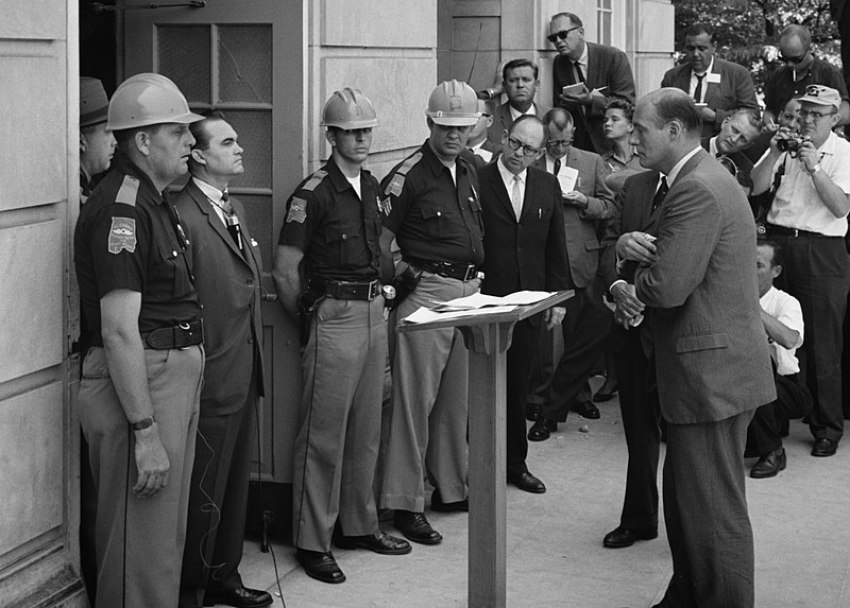George Wallace's name removed from University of Alabama building over segregationist past

The University of Alabama removed the name of the state’s former Gov. George Wallace from a building on its Birmingham campus because of the controversial legacy of the historical figure who supported segregationist policies for much of his career before he was born-again.
The Board of Trustees of the University of Alabama Systemunanimously approved a resolution last week to amend the name of the George C. Wallace Building, citing the need for “diversity, inclusion, and respect.”
“Governor Wallace built his political career in substantial part on defending an unlawful system of segregation, appealing to and exacerbating racial animosity, and resisting lawful court orders, all to the detriment of the State of Alabama and the University of Alabama System,” declared the resolution, in part.
“NOW, THEREFORE, BE IT RESOLVED by the Board of Trustees that the name of the George C. Wallace Building on the Birmingham campus is hereby amended to the Physical Education Building.”
While the resolution recognized that Wallace eventually renounced his support for segregation and made efforts to reconcile with the African-American community, “Wallace’s transformation does not erase the stain of his efforts to sow racial divisiveness and to promote conduct contrary to the law.”
“… nor does it erase the fact that for many of the students, faculty, and staff who comprise the University of Alabama System community, as well as individuals across the United States, Governor Wallace’s name remains an enduring symbol of racial injustice and rekindles memories of one of the State of Alabama’s darkest hours,” continued the resolution.
Trustee Judge John England Jr.said in a statement released last Friday that he believed the name change was “simply the right thing to do.”
“The UA System, the Board of Trustees, our working group and our campuses recognize Governor Wallace’s complex legacy, including the well-known acceptance of his apology by civil rights icon John Lewis,” stated England.
“That said, his stated regret late in life did not erase the effects of the divisiveness that continue to haunt the conscience and reputation of our state.”
Wallace’s daughter Peggy Wallace Kennedy expressed support for the name change.
“I, along with my husband Mark, have confidence in the Board’s decision to rename the UAB Physical Education Building,” she was quoted as saying in a statement shared by the university.
“It is important to the university to always seek positive and meaningful change for the betterment of students, faculty and the community.”
Wallace is a four-term governor of Alabama and failed Democratic presidential candidate, well known for his staunch support of racial segregation during the 1960s.
Refusing to enforce the U.S. Supreme Court decision Brown v. Board of Education, Wallace infamously declared, “segregation now, segregation tomorrow, segregation forever.”
However, in the late 1970s, Wallace became a born-again Christian. He repudiated his former views on race and apologized to the African-American community for his past actions.
In the 1980s, upon being elected governor of Alabama for the last time, Wallace made a record number of African-American political appointments.
Wallace died in 1998. Franklin Graham, the son of the late evangelist Billy Graham, spoke at Wallace’s funeral and tied the governor’s change of heart on racial issues to his conversion as a born-again Christian.
"I believe that if the governor were here, he would want to be remembered for this: Jesus Christ today, Jesus Christ tomorrow, Jesus Christ forever," Graham said at the time, as reported by CNN.
Over the past few years, many longstanding debates over buildings and schools named for historical figures with controversial racial pasts have been reignited.
Last November, the Alexandria City Public Schools board in Virginia voted to change T.C. Williams High School's name — the school made famous in the 2000 blockbuster movie “Remember the Titans” — due to the namesake being an avid segregationist.



























